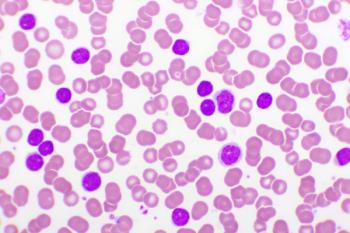
This marks the second complete response letter (CRL) received by Outlook Therapeutics for its treatment targeting wet age-related macular degeneration (AMD).

This marks the second complete response letter (CRL) received by Outlook Therapeutics for its treatment targeting wet age-related macular degeneration (AMD).

New research highlights which US counties lead in patient experience, health outcomes, and cost efficiency—and the policies that drive success.

Lebrikizumab shows sustained efficacy and safety in managing moderate to severe atopic dermatitis over 3 years, reducing the need for rescue therapies.

By week 16, researchers found 87.8% of patients achieved a satisfactory humoral response.

Multiple surgeries for glaucoma increased the risk of corneal edema in these patients, making lower-risk treatment alternatives more preferable.

A study of children with type 1 diabetes (T1D) reveals major disparities in access to insulin and modern technologies, with significant impacts on glycemic control.

Many patients later diagnosed with high-grade serous cancer had prior surgical or genetic testing opportunities that could have reduced their ovarian cancer risk, underscoring the need to expand opportunistic salpingectomy and preventive strategies.

The FDA has approved an updated COVID-19 booster while limiting access to high-risk individuals, amid ongoing debates on vaccine safety and efficacy.

Metabolic syndrome severity is a meaningful marker of chronic kidney disease risk even when patients do not have other major risk factors.

As many as one quarter of people with chronic urticaria also have metabolic syndrome, data suggest.

Patients with acute respiratory failure who’ve been placed on a mechanical ventilator are less likely to be transferred to high-volume centers if they are uninsured, thus increasing their odds of mortality.

Medical school application and matriculation rates decreased for underrepresented racial and ethnic minorities in medicine after the 2023 Supreme Court affirmative action repeal.

In the final clip, James D. Chalmers, MBChB, PhD, notes that while the FDA approval of brensocatib is a milestone, questions remain on optimal patient selection, long-term benefits, and further targeting inflammation.

Despite the findings, existing data around cardiovascular risk in chronic lymphocytic leukemia (CLL) are limited, and more comprehensive information is needed to draw strong conclusions.

The definition of comprehensive non-small cell lung cancer (NSCLC) testing is rapidly evolving with new biomarkers and therapies, according to Julia Rotow, MD, creating added challenges for community practices.

In this episode, Richard A. Brook, MS, MBA, discusses his study showing that infertility treatment coverage increases assisted reproductive technology (ART) use and improves pregnancy outcomes.

New insights reveal how early intervention in radiologically isolated syndrome can delay multiple sclerosis (MS) onset and improve patient outcomes.

Renal denervation modestly lowers blood pressure, with durable long-term benefits, according to Deepak L. Bhatt, MD, MPH, MBA.

The global incidence, deaths, and disability-adjusted life years tied to metabolic dysfunction–associated steatohepatitis (MASH)-related liver cancer have more than doubled in older adults since 1990, with a heavy impact on low- and middle-income countries.

Race, ethnicity, and social factors can influence survival outcomes in adults with relapsed or refractory B-cell acute lymphoblastic leukemia (B-ALL) receiving brexucabtagene autoleucel (brexu-cel).

The findings are part of a new wave of research that uses artificial intelligence (AI) to hasten scientific discovery.

Novel 3D analysis reveals core tumor niches drive resistance through AP-1 signaling and stromal reprogramming.

Cutting-edge therapies can help move the treatment landscape forward, but basic treatment and prevention, such as smoking cessation, are still valuable means of addressing non–small cell lung cancer (NSCLC).

A review of 59 studies finds inconsistent knowledge, attitudes, and practices among health care professionals in detecting diabetic retinopathy.

Male and female fat deposit distribution was associated with an increased cardiovascular age-delta; however, some adiposity phenotypes seen as beneficial in one sex were a risk in the other.

Older survivors of HIV require ethical safeguards and autonomy to feel comfortable participating in end-of-life research for a cure for HIV.

The study found no difference in physician communication scores between patients with advanced cancer and other illnesses, suggesting that discordance may stem from other dynamics.

Using US claims data, the authors evaluated oral glucocorticoid (GC) use at 5 time points during their retrospective analysis: 3 months before starting efgartigimod and 3, 6, 9, and 12 months after starting efgartigimod.

Evolocumab is now indicated for adults who don’t have a prior cardiovascular disease diagnosis.

A clinical trial assessing a remote weight loss intervention in women with breast cancer saw a reduction in body weight.

259 Prospect Plains Rd, Bldg H
Cranbury, NJ 08512
© 2025 MJH Life Sciences®
All rights reserved.
